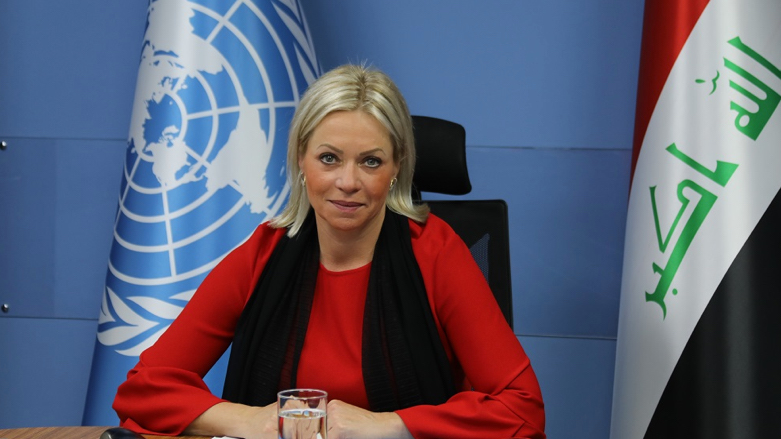UN envoy to Security Council calls for end to Iranian and Turkish attacks

ERBIL (Kurdistan 24) – Jeanine Hennis-Plasschaert, the Special Representative of the UN Secretary-General for Iraq and Head of the United Nations Assistance Mission for Iraq (UNAMI), during a briefing to the United Nations Security Council underlined that Turkish and Iranian attacks in Iraq must cease in Iraq.
In May, I raised the alarm at Turkish and Iranian shelling in the North having become the “new normal” for Iraq. With last week’s Iranian attacks, I can now only repeat myself. These reckless acts must cease. No neighbour should treat Iraq as its backyard. #UNSC pic.twitter.com/FxE8j84ilt
— UNAMI (@UNIraq) October 4, 2022
"Addressing the Council in May, I raised the alarm at Turkish and Iranian shelling in the North having become the “new normal” for Iraq. And with last week’s Iranian attacks, I can now only repeat myself," she said.
"These reckless acts, which have devastating consequences, killing and injuring people, must cease."
Moreover, she added that "no neighbour should treat Iraq as its backyard. No neighbour should be allowed to routinely, and with impunity, violate Iraq’s sovereignty and territorial integrity. Yet it is happening. Time and again."
The Kurdistan Region border areas with Iran witnessed also today another day of shelling and bombardments for the eleventh consecutive day amidst widespread protests in Iran over the death of Jina Amini.
Also last week on Wednesday, at least 14 people were killed and nearly 60 others were wounded when Iran carried out attacks on several Kurdish opposition parties inside the Kurdistan Region.
Moreover, Turkey has continued to carry out cross-border attacks and drone attacks in the Kurdistan Region.
Also on July 20, Turkish shelling on the Parkha (Parkhe) resort in the Zakho administration area killed nine Iraqi tourists, including three children.
Kurdistan Elections
Political fallout of not conducting timely Kurdistan Region elections, of not properly managing public expectations, of neglecting basic democratic principles, will bear a high cost. And if that were to happen, it would not be for a lack of warning. #UNSC pic.twitter.com/ESeNiBiofe
— UNAMI (@UNIraq) October 4, 2022
Moreover, on the delay the Kurdistan Region's parliamentary elections that were previously planned for Oct. 1, she said that the UN "have also actively engaged Kurdistan Region authorities and political parties on several outstanding issues related to the 6th Kurdistan Region parliamentary elections."
Read More: 'Holding Kurdistan elections on time has become impossible': KDP official
"These elections were initially scheduled for the first of October, that is, three days ago. To date, however, Kurdistan Region political parties are yet to find common ground, with again the “yellow and green” divide as the single most disruptive factor impeding progress."
'In no uncertain terms, we made clear that, here also, we do not have a magic wand," she added.
"Here also, it comes down to political will. Here also, party leaders should understand that one can only be truly influential if they accept the influence of others. Hence, a willingness to compromise is essential. More generally: monopolizing power breeds instability. That goes for both Iraq as a whole and for the Kurdistan Region," she added.
Moreover, she stressed the "political fallout of not conducting timely Kurdistan Region parliamentary elections, of not properly managing public expectations, of neglecting basic democratic principles, will bear a high cost. And if that were to happen, it would not be for lack of warning."
"Hence, we are impatiently waiting for parties to fulfil their many promises and to act in the service of the peoples of the Kurdistan Region," she concluded.
Kurdistan President Nechirvan Barzani in August also warned against delaying Kurdistan Region’s parliamentary election, adding it could “harm the image and standing of the Kurdistan Region.”
